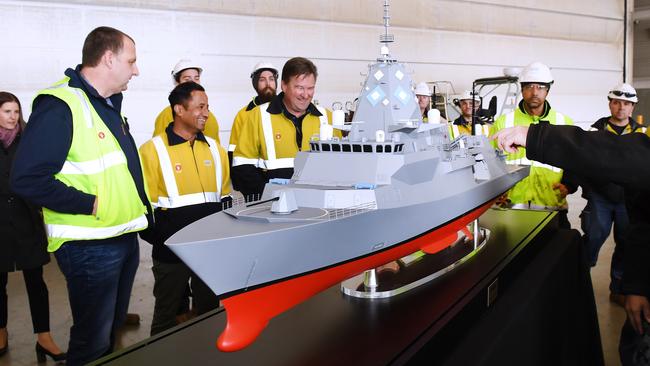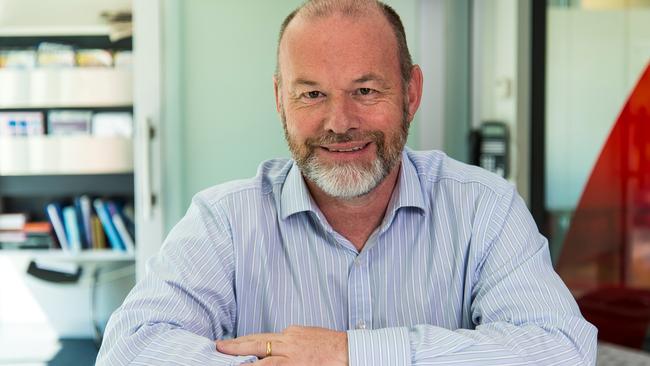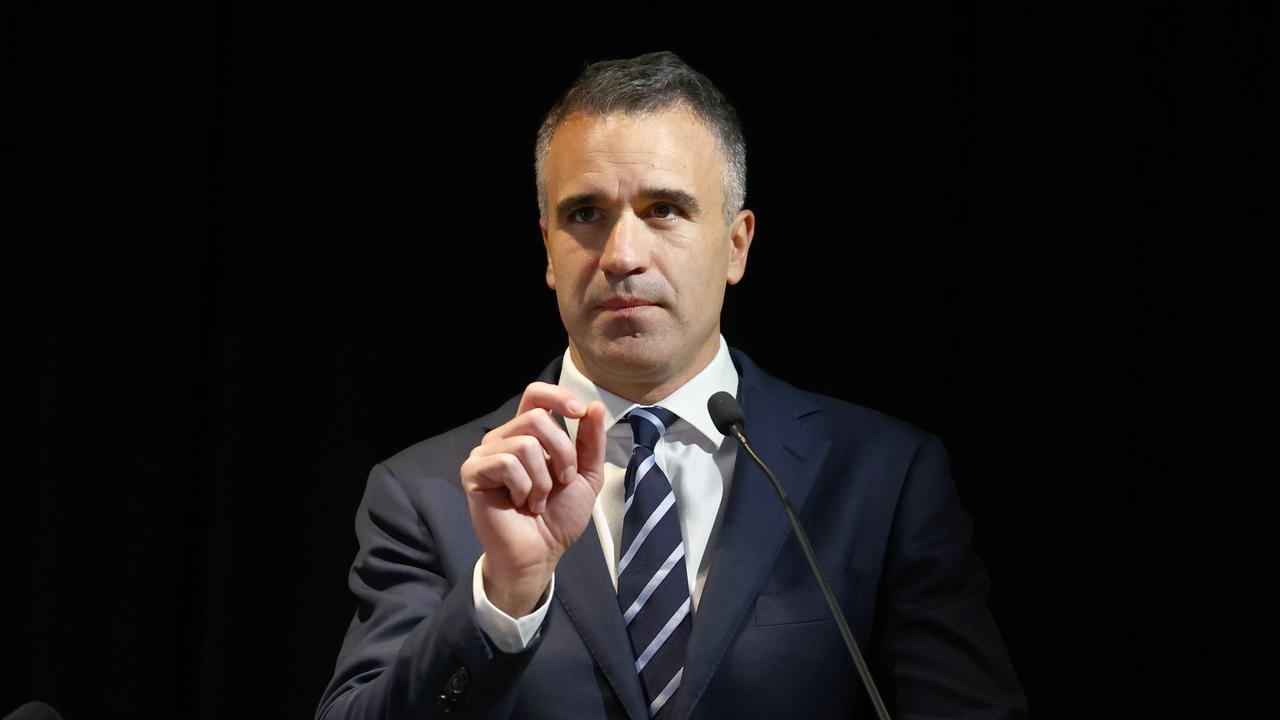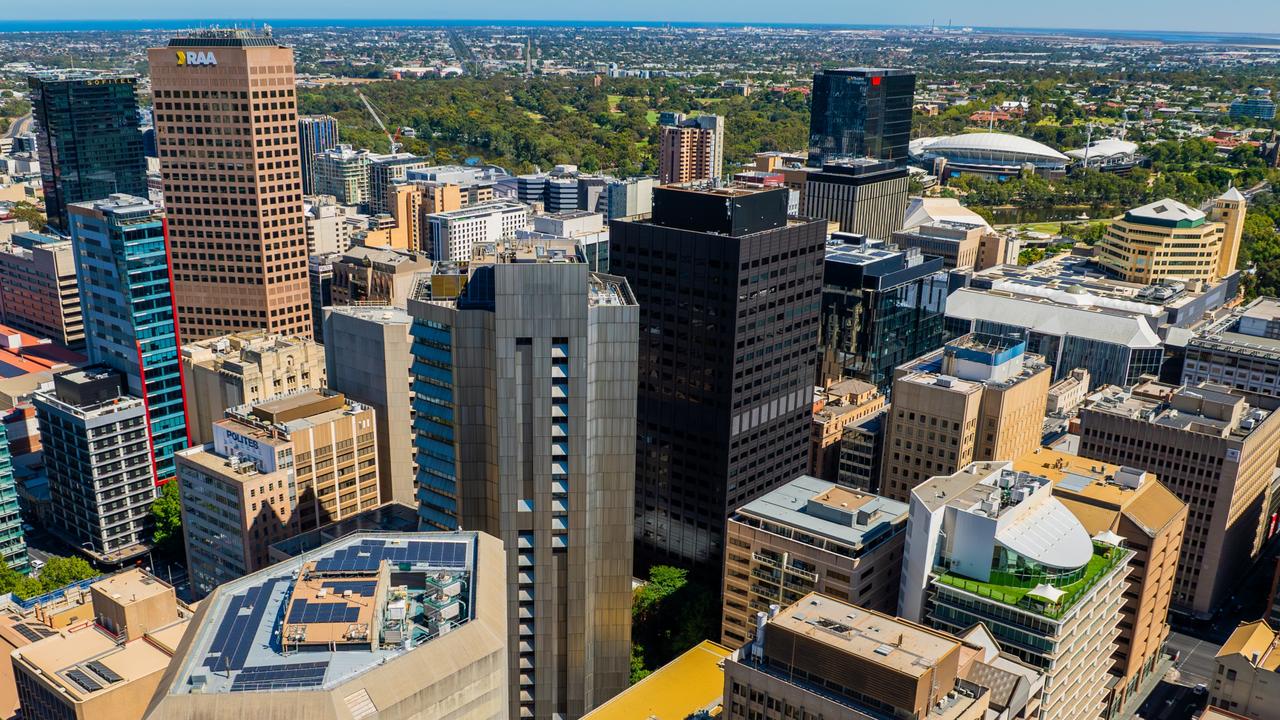Defence industries offering jobs for tomorrow – and today
Forget tomorrow – future industries are already a key part of South Australia’s defence industry.
Future Adelaide
Don't miss out on the headlines from Future Adelaide. Followed categories will be added to My News.
They’re called future industries but they are already firmly embedded in South Australia’s defence sector, where workers of today are using technologies of tomorrow on projects including the Attack class submarines and Hunter class frigates.
“In shipbuilding in the past, there was a lot of manual processes and drawings, whereas now it’s all digital technology – a lot more computer-aided design techniques, visualisations and levels of automation – and those sorts of technologies also have benefits to other parts of the economy,” says Richard Price, chief executive of Defence SA.
But it’s not all about shipbuilding and submarine building. “A lot of the systems at the RAAF Base Edinburgh rely heavily on software, and so we’re seeing a big growth in careers in software engineering, systems engineering, project management around those projects as well as around the shipyard,” Price says.
While technical occupations such as information technology and cyber security, engineering, fabrication, project management and logistics are in high demand, there’s also room in defence for the traditional business skill sets such as commercial, lawyers, procurement and HR. Indeed, such is the range of careers that Defence SA has launched a new campaign, Find Your Place, to showcase the diversity of opportunities on offer within the defence space – and, depending on the role, you don’t necessarily need a higher education qualification either.
“A lot of high value in any business is placed on those employees who demonstrate an ability to work together in teams, who are flexible and prepared to take on new challenges and opportunities – you don’t have to have the university degree,” Price says. “In fact, one of the career paths for people in the shipyard is to do specialised on-site training and then get opportunities through associate degrees to build up other skill sets over time, with many going on to senior leadership positions within those industries.

“On the software side, traditionally most of the software and system engineering sides have come from graduates; however, given the fact we now have this massive cyber security threat, we’re seeing a lot more opportunities for skilled software IT professionals who don’t have a degree but do have the wherewithal to respond to cyber security incidents.”
More than 200 local companies currently work in the defence supply chain, offering opportunities and mobility for people to develop their skills and build rewarding career paths close to home. “The defence industry is very much a project-based industry, so you don’t necessarily have to do the same job for your whole life – there is a lot of different areas to work on,” Price says. “I have worked on aeroplanes, ships and police control rooms during my career journey, and that’s not unusual. The great thing is there are enough companies in this state that there are always career opportunities available.”

But, with seven of the top 10 western defence companies in the world (excluding China and Russia) currently operating in the state, the opportunities to export not just South Australian commodities but also people are strong. “It’s not unusual for people in the higher technical skill areas to have opportunities to work overseas for a period of time,” Price says. “There is a strong international market where experience and expertise is valued.”
Career security is another incentive. “We saw during Covid how some sectors are very vulnerable to disruption – our state’s defence industry ploughed through Covid, and kept working as best as it could within the restrictions,” Price says. “Its companies were impacted far less than others because the government needs to keep people working.”
This is also a sector firmly focused on the future. “It’s very unusual to have an industry that can say, ‘This is what we expect to be doing for the next 50 years’,” Price says. “The plan will change over time but the general direction is clear: We are going to do so much more of this work in Australia and, being South Australia, the Defence state, we expect that so much more of it is going to get done here.”



